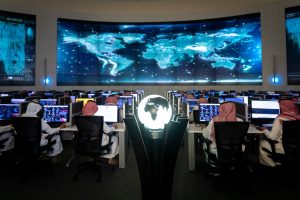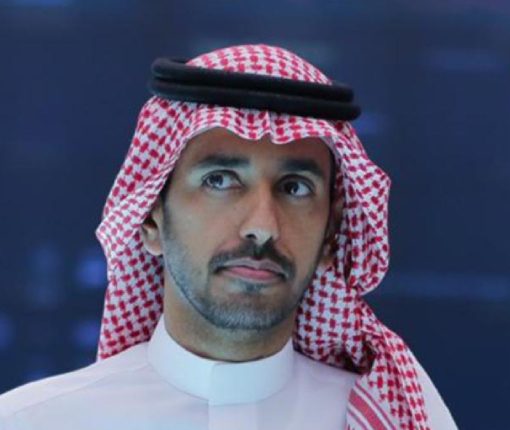The events of the current international political scene are continuously changing and at such a fast pace that it is hard to keep up with all the details and dimensions. That is why we often make the decision about what we feel is worth keeping up with. We have different interests and priorities that determine how we relate to events. Nevertheless, the pandemic that the world is currently facing and its resulting known and unknown risks hascompletely cancelled this diversity of interests. It is not possible to relegate this event to secondary status, as COVID-19 is the most frequently used word in international discourse at all political, religious and social levels.
This is a turning point in the history of humanity because, after this massive shock, it is not possible for the world to continue as it was. After a long medical quarantine, people will not find life the same as before. So, it is right to say that the Corona pandemic is , similar to major wars, more like a groundbreaking event or a doorstep in world history marking what was before and after it. It represents the perfect moment to identify the qualities of states, societies and international organizations. In difficult situations, different entities show their actual power as well as their capability to cope with what is happening and adapt to it using the appropriate choices.
The isolation of extremist organizations is evident to everyone. These organizations’ savage inclinations and sickly hatred of life, non-followers, science, development and human happiness in general has found a natural environment that has doubled its impact in the context of this pandemic . As a result, it is apparent that such organizations gloat over humanity’s grief and advocate perdition, which displays the face of extremism in all its hideousness.
Since darkness gives light more opportunity to shine even more brightly, moderation, coexistence and solidarity, which are the values that have been – despite the challenges – prevalent among countries and their citizens during this pandemic, appearing as a moral victory in our world in the face of the pandemic. This left the extremist groups themselves to appear as a part of this pandemic. These bright moments in the face of darkness, this rising up when confronted with obstacles have become particularly evident on three levels:
First, within the framework of international relations, which has gradually moved away from the conflictual situation of the world, which for a while was the conventional state of affairs for international policies that are dependent on the balance of power, whether regionally or internationally. The pandemic revealed the moral depth, as embodied in the general tendency to face an imminent threat to everyone’s lives, regardless of geographical, ethnic, sectarian or religious affiliations.
This created an international state of mind that allowed for reconsideration. Thus, we find that some of the occasional racist expressions about the origins and causes of the epidemic are beginning to fade away to make room for more conscious language and possibilities of cooperation and solidarity in order to serve life-saving strategies in general, regardless of their location or origins. As such, hate speech becomes incoherent in front of the prevalence of this strong spirit of sentimental partnership within humanity. Ironically, the more people hide in their homes in response to the precautions called for by their governments, the more concerned they become with tracing the fate of their counterparts in their battle for the victory of life over the element of death that this hidden enemy spreads.
A general humanitarian dimension was projected through the global perspective of political relations. This feeling that was shared by a large part of humankind, which coincided with the powerful and exceptional experience of the pandemic, has definitely made them discover that they share the same fate. It is therefore important they take care of their common existence, shifting away from grudges or hatred. This is what states and international organizations must push for among their people.
Second, at the level of the different official religious institutions, the Corona pandemic allowed enlightened clerics to show the bright side of religions, when they all hastened to engage in a policy of preserving people’s lives as well as taking the people’s side. They provided various religious readings to support decisions by states as part of the health policies that aim at confronting the pandemic and protecting human beings.
They have demonstrated the importance of religious institutionalization in shielding societies against the extravagant promises of extremist ideologies. In fact, these institutions have not come up with anything novel; they have simply made their followers conscious of the practical aspect of religion, as it intrinsically considers life a sacred blessing and a top priority. So, all official religious institutions recommended suspending mass rituals in the interest of protecting human health in order to prevent the disease from spreading, stop the virus from reproducing, and minimize the expansion of a global pandemic. In so doing, religious institutions are expressing that the lofty noble goal of religions is to rebuild the Earth, not for people to perish and have their lives ruined.
People’s hope is what happens inside scientific laboratories as they eagerly work towards innovations by scientists’ of different specialties. Advocates of extremism, however, deal with the pandemic as a fated divine curse; hence, they see the resistance of it through science as an attempt to stop the course of destiny. As such, they propagate feelings of despair, fear and schadenfreude among their followers.
Thus, as much as we encourage the institutional work of religious discourse and organize its presence in accordance with the requirements of the general policies of states, making it possible for all religions to show their best; to become a kind of support, rather than a barrier or obstacle to openness. Furthermore, promoting integration among the various religious, scientific, and political discourses in light of the known interests of all humanity will make the distorted image of religions that the godfathers of the extremist ideology present even darker and more atrocious. This image is consequently destine to diminish and fade with time, like polluted air dissipating when windows are opened.
Third, at the economic level of the world, the spirit of international solidarity makes it possible to test the importance of the policy of giving, more than the importance of profit per se. So, the decisions of the G20 summit presided by the Custodian of the Two Holy Mosques King Salman bin Abdul Aziz and the preceding coordination and communication of heads of state with His Highness Crown Prince Mohammed bin Salman will mark the launch of a new economic era. This era bets more on creating more transparent international justice that makes the major economies bear moral responsibilities for the suffering of poor countries and groups. This has left the door wide open to the return of the caring state that does not leave its people to face their destinies.
The huge budgets that were allocated to counter the pandemic economic effects violate the principles that suggest state intervention through funding or support for the manufacturing sectors to protect people’s welfare is, by economic reasoning, an unforgivable sin. But it has become clear that governments maintaining strict control of the economy demonstrated higher efficiency in steering the crisis and made citizens and residents feel greater economic security. This has promoted a spirit of trust and solidarity within all segments of society. Because of all this, the extremist ideology will miss the opportunity of hunting new followers by benefiting from the gray or black areas of the current crisis, or any similar crisis in the future. Extremist discourse exploits economic fragility in order to encourage feelings of spite, which are cunningly transformed into murderous feelings. Accordingly, the prevalence of the feelings of reconciliation within partnerships, the sense of economic security, and caring for the most disadvantaged groups and the poorest countries will necessarily represent an increased immunity against the disease of extremism. The arguments of extremism will lack the attractiveness that it used to promote itself through in the past.
To conclude, it can be said that the shock of the Corona pandemic will facilitate a shift in the level of the world’s value system. Extremist choices, at the two levels of the absolute individual or the dominant group, have proven useless in managing the crisis. Hence, there was a general tendency at the two previously mentioned levels towards non-extremism in choices. So, states have bet on their citizens’ sense of responsibility; religious institutions have demonstrated flexibility in cooperating with other sectors without feelings of superiority/inferiority or injustice or the need for seclusion; economic institutions have combinedinitiatives for states and individuals to bring about local and international solidarity funds; and people are more inclined to coexist with each other while in their familial, warm and compassionate quarantines and show solidarity with far away people.
It seems that the value that crystallizes all these feelings has a clear label, moderation, which in our opinion will become a more established and institutionalized international virtue in the coming years – what will be called after we overcome this pandemic “the world after Corona”. Extremists lie in wait for moderation,believing that the difficulties it may present will be their chance to further spread their culture of seclusion, hatred, and extremism. However, encouraging these universal and optimal values that have resulted from this humanitarian crisis will disturb those extremists’ already disclosed plans and deepen their isolation and defeat.
We have not yet developed a vaccine that strengthens our immunity against COVID-19, but we are awaiting that. Meanwhile, we are certain that moderation is the vaccine for humanity against the decline of civilization that we call extremism – in all of its forms.
*Published in Asharq Al-Awsat Newspaper (in Arabic), Sunday 26-04-2020.




